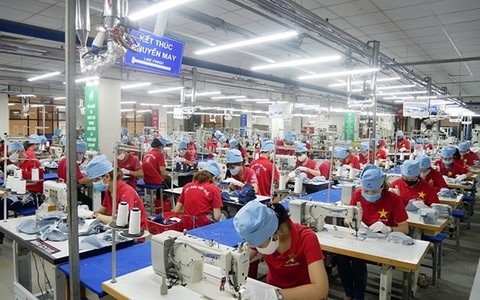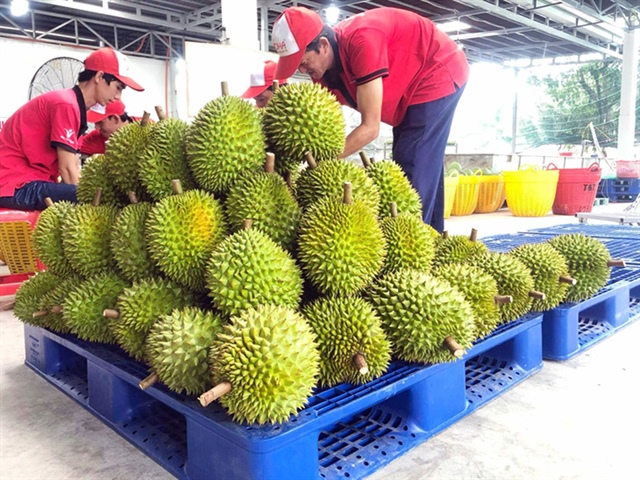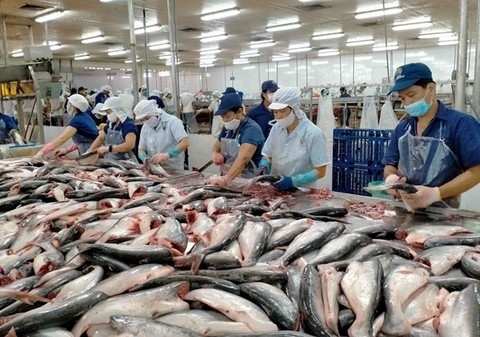Vietnamese fishing ground running out of fish
Vietnamese fishing ground running out of fish
A body of water located in the Gulf of Thailand, off the Mekong Delta region and one of Vietnam’s most important fishing grounds, is quickly being depleted of its aquatic resources due to overfishing, threatening the livelihood of thousands.

Le Van Ngau, captain of a fishing boat operating in fisheries off Ca Mau and Kien Giang Provinces in southern Vietnam, has felt the direct economic impact of the fish’s disappearance.
“Each of our deep sea fishing trip lasts around 45 days and consumes roughly 7,000 liters of fuel,” Ngau said.
“Fuel alone costs us VND120 million [US$5,100] per trip, and you take into account other expenses such as food and ice it can add up to a total of VND150 million [$6,500],” he said.
As the number of fishing boats grows while the fish population is already shrinking, Ngau said he and other fishermen are making less and less profit from each trip, even reporting heavy losses at times.
“Many of my fellow fishermen have gone bankrupt,” Ngau said.
To live by, many deep-sea fishing boats in the area have switched to catching squid and anchovy in shallower waters.
“We have to set sail anyways because a docked ship rusts quickly,” Ngau said.
There are over 4,770 registered fishing boats in the southern province of Ca Mau, according to statistics from the provincial Department of Agriculture and Rural Development.
However, thousands of fishing boats from central Vietnam are also conducting fishing activities in Ca Mau waters, said Chau Cong Bang, deputy director of the provincial Department of Agriculture and Rural Development.
Though this massive fleet helps improve the region’s overall marine catch, it has also led to quick depletion of aquatic resources as fish do not reproduce as fast as they are caught, Bang said.
“This occurs not only in Ca Mau but also in other fishing grounds nationwide,” Bang said.
“Our efforts to replenish the fish population including enforcing smaller boat s and releasing baby fish into the ocean have not produced expected results,” he added.
To cope with the problem, authorities in southern Vietnam has already taken an initiative to cut down on the number of fishing boats allowed to operate in local waters.
As of December 2018, the number of fishing boats in Kien Giang Province has been reduced to around 1,000 boats less than there were in early 2013.
However, there are still more than 10,700 fishing boats operating in Kien Giang, according to Pham Ngoc Vu, deputy director of the provincial Department for Aquatic Resource Exploitation and Protection.
“That is really too many boats for a fishing ground that is only 63,290 square kilometers wide,” Vu said.
The fact that trawling contributes to more than 75 percent of total catch in Kien Giang waters also has a negative impact on the local fish population, as the netting technique is not effective in sorting out unwanted fish, according to Nguyen Van Tam, director of the provincial Department of Agriculture and Rural Development.
In addition, the large number of low-range fishing boats, making up nearly half of all fishing boats in Kien Giang, has also sped up depletion of coastal aquatic resources, Tam said.
Provincial authorities are also looking to reduce the amount of yearly marine catch by 35 percent between 2017 and 2020, from over 765,000 down to 500,000 metric tons.
Vessels that do not meet new fishing standards will no longer be allowed to operate, as fishermen are set to receive government support in seeking other jobs.
“In the near future, we will stop authorizing the building of new trawlers with less 90 metric horsepower,” Vu said.
Vietnam’s total marine resources are estimated to be around 4.36 million metric tons, according to an official survey conducted between 2010 and 2015, said Le Tran Nguyen Hung, director of the Aquatic Resources Conservation and Development Department under the Ministry of Agriculture and Rural Development.
Meanwhile, the country is capable of exploiting around 3.1 million metric tons of aquatic resources, which is already over the threshold that is possible for nature to replenish its resources, Hung explained.
“We are looking to introduce regulations to clearly define in which bodies of water is fishing allowed, as well as areas and periods when fishing is banned, to protect young populations of fish and promote their reproduction,” Hung said.
“There will also be more frequent inspection and patrols to gradually put an end to illegal fishing.”








